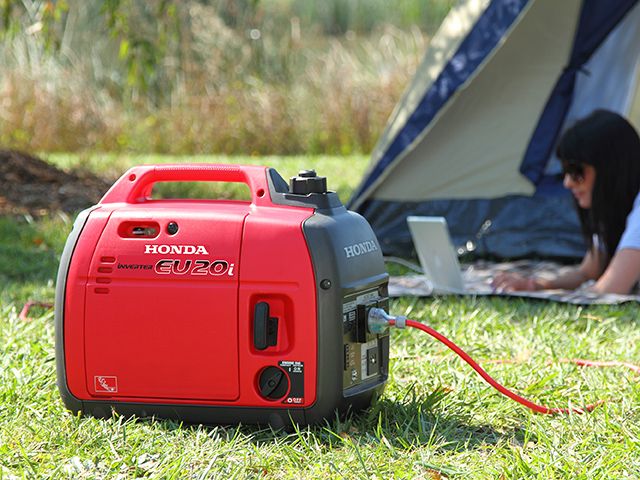Generator safety tips
10 Dec 2018

Owning a generator lets you provide electricity just about anywhere, but as a mechanical device that produces high volumes of electricity, it’s important to take both factors into account and use them safely. While you should always check the manufacturer’s instructions before using one, here are a few things that you should be aware of before starting up your generator.
Avoid any risk of CO poisoning
Whether you’re using an inverter or a standard/industrial generator, fuel is burned to generate electricity. This inevitably creates carbon monoxide exhaust which can be fatal in inhaled, so you should never use your generator in an enclosed space or expose yourself or others to the fumes.
Opening doors and windows won’t necessarily promote CO buildup, so to be safe, never use one inside. Carbon monoxide is colourless, tasteless and odourless so if you ever feel sick, dizzy or weak while operating a generator, get to fresh air IMMEDIATELY.
Avoid electrocution
There can be a number of ways electrocution can arise, but they easiest way to remove any risk is to never use your generator in wet conditions or faulty plugs. It’s possible to cover it to prevent rain but be sure to allow for the exhaust to be removed.
It’s recommended to only plug your appliances or devices directly to the generator, but if you’re powering more than one appliance or device then use a heavy duty, outdoor rated extension cord that is rated (in watts or amps) to at least the sum of all your connected loads.
It should also go without saying, but don’t connect faulty plugs to a generator or extension cord, and never try to power your house by ‘backfeeding’ through a wall outlet.
Don’t store fuel next to the generator
Always keep your fuel away from the generator itself, and only store it in approved containers. Keeping fuel too close to the generator risks the case that it tips and ignites. Fuel spilt on hot engine parts can cause it to ignite as well, so always let the generator cool before refueling.
Don’t overload your generator
Overloading your generator for long periods of time can cause its engine and alternator to overheat; wearing it down faster and causing a breakdown in breakdown in oil consistency, all of which shorten the lifespan of your generator and can increase the risk of fire or electrocution.
It’s important to make sure your generator is able to power everything you want to and calculating the size of generator you require is simple. Check out our previous blog for more info or use this simple wattage calculator.